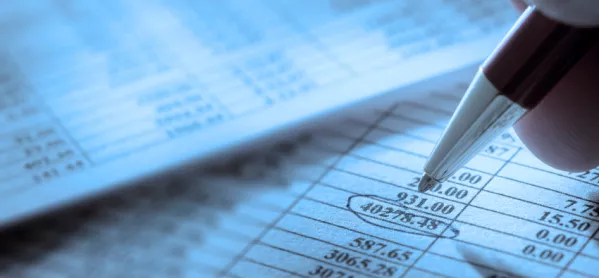- Home
- GCSEs: how data can help you to assign grades
GCSEs: how data can help you to assign grades

Up and down the country, teachers are getting to grips with rank ordering the pupils in their classes. They have been told that they are already very good at doing this. I, too, would feel pretty confident in rank ordering the pupils in my class - I have known them for three years, some of them even longer - although I hope that some of them would have surprised me in the summer by pulling it out of the bag at the last moment.
While some departments will be used to standardising scores across the department, for other heads of department, this will be the first time and it can be a particular challenge in core subjects.
Teacher assessments
Reconciling each teacher’s rank order into a master list is a potential minefield, but it is also a fantastic teaching and learning opportunity for teachers to collaborate and come to a consensus about exactly what distinguishes a grade 9 from a grade 8 student.
Teachers can then use this to learn from their colleagues and inform their future teaching practice.
Inevitably, there are going to be some differences in opinion, with some teachers being too optimistic and others too pessimistic about the grades that the pupils in their classes will achieve, and this has the potential to lead to some difficult conversations.
The key is taking those holistic teacher assessments - where they have taken into account all aspects of a pupil’s performance - and moderating them to be in line with the rest of the department. This can be done by using data to work out who is off-kilter and, more crucially, by how much. Middle leaders can then go back to members of their department and have objective and constructive conversations before attempting to create their master rank order.
How to standardise GCSE grades
Here are some key points to bear in mind when looking at the data held on pupils:
- Keep it simple - decide on only four or five key pieces of information that are standard for all pupils. Class teachers will already have holistically considered the performance of the pupils; this information is being used to confirm or adjust those judgements.
- Use a range of independent data types (eg, baseline data, reporting data, assessment data). Try to identify and avoid crossover (eg, reporting “effort” and “rewards and sanctions” data).
- Use recent data where you can as the quality of data degrades over time.
- Use information that has been nationally or internally standardised where possible.
- Use percentage ranks for each piece of evidence rather than raw percentages, as this allows you to combine data strands more reliably.
- Think about the weighting that you are going to attribute to each piece of information. The correlation of coefficients of each individual piece of data is likely to be small and getting the weighting right greatly increases the accuracy of your analysis.
Heads of centres, who have to sign off on these grades, are going to want to assure themselves that they have been rigorously and objectively verified within a process that is straightforward and easy to explain.
It is right that teachers create their own rank orders and have buy-in towards the grades that pupils are awarded at the end of this process.
However, it is equally important that each and every pupil has a level playing field - allowing them to get the grade that they deserve and have been working so hard to achieve.
Chris Smith is the director of studies at Reigate Grammar School in Surrey
Register with Tes and you can read two free articles every month plus you'll have access to our range of award-winning newsletters.
Keep reading with our special offer!
You’ve reached your limit of free articles this month.
- Unlimited access to all Tes magazine content
- Save your favourite articles and gift them to your colleagues
- Exclusive subscriber-only stories
- Over 200,000 archived articles
- Unlimited access to all Tes magazine content
- Save your favourite articles and gift them to your colleagues
- Exclusive subscriber-only stories
- Over 200,000 archived articles



